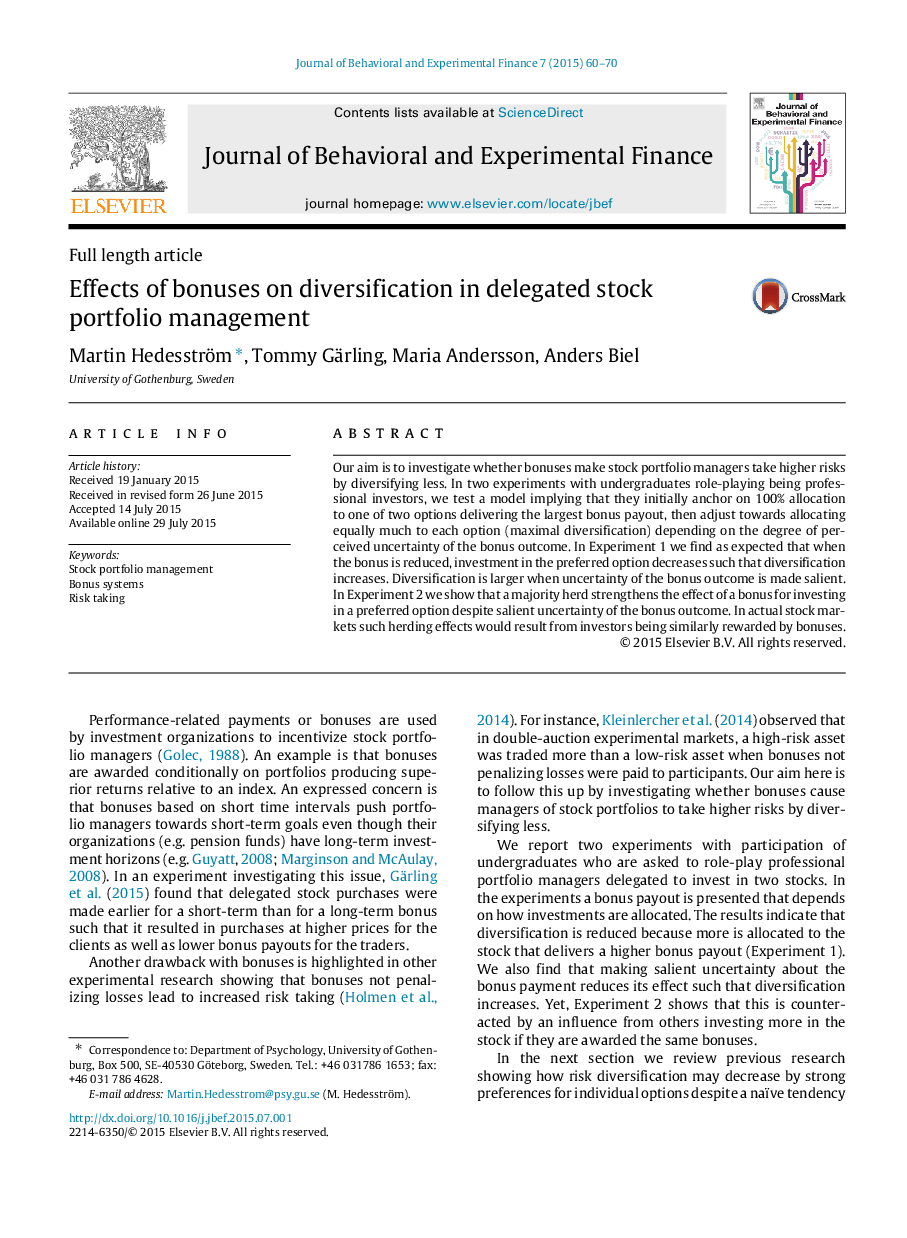| Article ID | Journal | Published Year | Pages | File Type |
|---|---|---|---|---|
| 931689 | Journal of Behavioral and Experimental Finance | 2015 | 11 Pages |
Our aim is to investigate whether bonuses make stock portfolio managers take higher risks by diversifying less. In two experiments with undergraduates role-playing being professional investors, we test a model implying that they initially anchor on 100% allocation to one of two options delivering the largest bonus payout, then adjust towards allocating equally much to each option (maximal diversification) depending on the degree of perceived uncertainty of the bonus outcome. In Experiment 1 we find as expected that when the bonus is reduced, investment in the preferred option decreases such that diversification increases. Diversification is larger when uncertainty of the bonus outcome is made salient. In Experiment 2 we show that a majority herd strengthens the effect of a bonus for investing in a preferred option despite salient uncertainty of the bonus outcome. In actual stock markets such herding effects would result from investors being similarly rewarded by bonuses.
